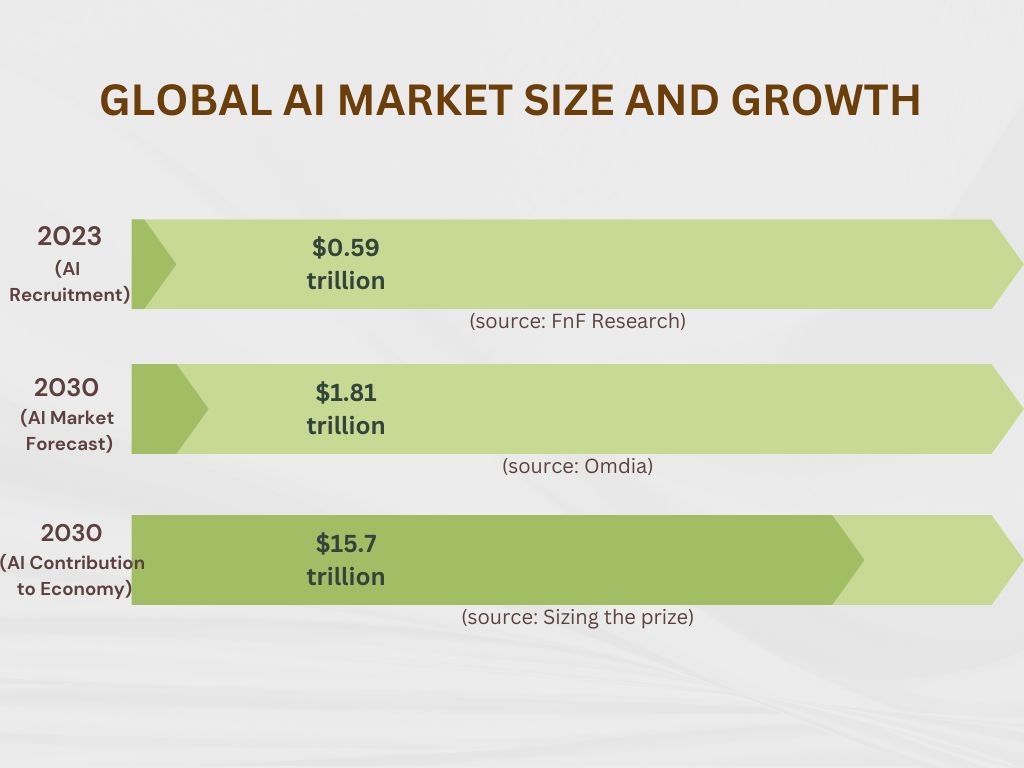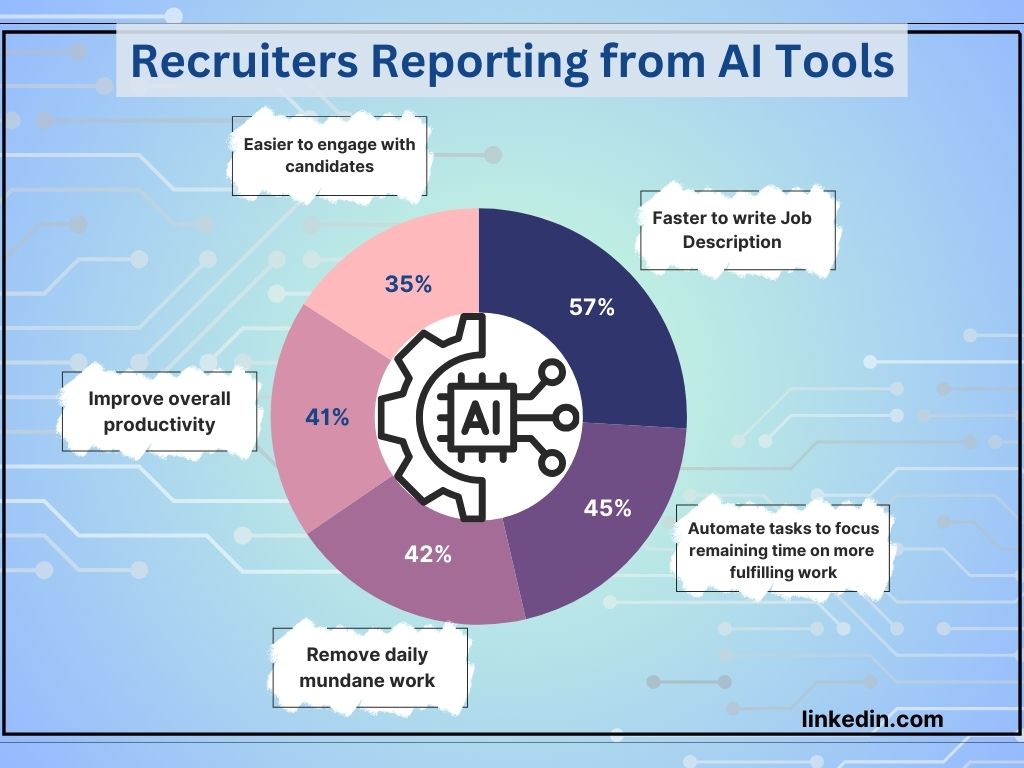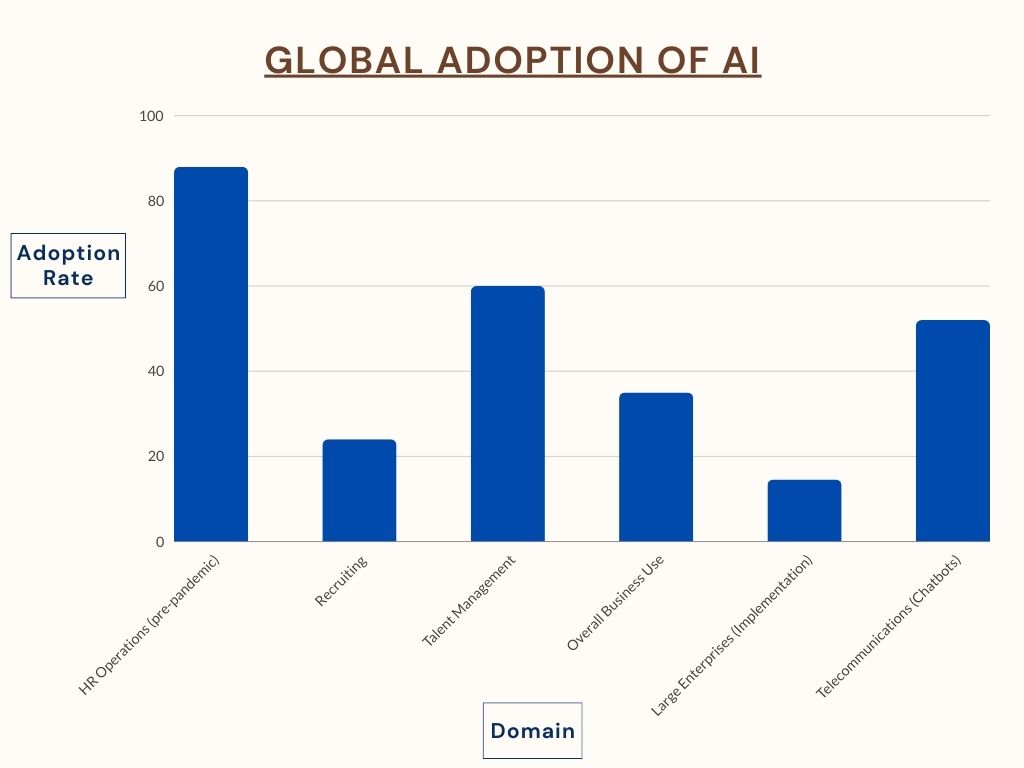How AI is Transforming Recruitment Today?
Estimated Reading Time: 7 minutes
.jpg)
In the fast-paced world of recruitment, one thing is abundantly clear: the game has changed. With the integration of Artificial Intelligence (AI), traditional practices are undergoing a profound transformation, ushering in an era defined by efficiency, precision, and ingenuity. From identifying top talent to enhancing candidate experience, AI is reshaping the recruitment landscape in ways we couldn't have imagined. Join me as we explore the current applications of AI in recruitment and the profound impact it's having on organizations worldwide.
 Candidate Sourcing and Screening:
Candidate Sourcing and Screening:
One of the primary applications of AI in recruitment lies in candidate sourcing and screening. AI-powered algorithms analyze vast amounts of data from various sources, including resumes, social media profiles, and professional networks, to identify potential candidates that match specific criteria. By automating the initial stages of candidate screening, AI accelerates the recruitment process, enabling recruiters to focus their time and resources on engaging with qualified candidates.
Predictive Analytics for Hiring:Predictive analytics leverages AI algorithms to forecast future outcomes based on historical data patterns. In recruitment, predictive analytics can be used to identify trends and patterns in candidate behavior, assess the likelihood of a candidate's success in each role, and predict future hiring needs. By harnessing the power of predictive analytics, organizations can make data-driven decisions that optimize hiring processes and minimize recruitment costs.
 Bias Reduction and Diversity Promotion:
Bias Reduction and Diversity Promotion:
AI has the potential to mitigate unconscious bias in the recruitment process, thereby promoting diversity and inclusion within organizations. By anonymizing candidate data and using machine learning algorithms to analyze candidate qualifications and suitability, AI can help recruiters focus on merit-based criteria rather than subjective biases. Additionally, AI-driven tools can monitor and flag potential biases in job postings, ensuring that job descriptions are inclusive and appealing to a diverse pool of candidates.
Personalized Candidate Experience:AI-powered chatbots and virtual assistants are transforming the candidate experience by providing personalized and responsive support throughout the recruitment journey. These AI-driven tools can engage with candidates in real-time, answer frequently asked questions, schedule interviews, and provide updates on application status. By delivering a seamless and interactive experience, organizations can enhance candidate satisfaction and strengthen their employer brand.
 Skills Assessment and Matching:
Skills Assessment and Matching:
AI-driven skills assessment tools use natural language processing (NLP) and machine learning algorithms to evaluate candidates' skills and competencies based on their resumes, cover letters, and online profiles. These tools can identify relevant keywords, assess proficiency levels, and match candidates to job requirements with greater accuracy. By automating the skills assessment process, organizations can expedite candidate evaluation and ensure alignment with job requirements.
AI's Efficiency and Effectiveness| Aspect | Benefit/Finding | Source |
|---|---|---|
| Efficiency | Time Saving | Tidio - 44% of recruiters & 67% of decision-makers |
| Streamlined Processes | Medium - Hilton reduced time-to-fill by 90% | |
| Effectiveness | Candidate Sourcing | LinkedIn - 72% of recruiters value AI for sourcing |
| Budget Allocation | Statista - 35.5% of companies allocated budget for AI recruiting tools in 2018 | |
| Talent Acquisition | The Recruitment Survey Report - 60% of respondents reported success in finding hard-to-find talent |
While the current use cases of AI in recruitment are undeniably transformative, the potential applications of AI are vast and continuously evolving. As AI technologies continue to advance, we can expect to see further innovations in areas such as candidate engagement, talent pipelining, and workforce planning. However, it's essential to strike a balance between leveraging AI's capabilities and preserving the human touch in recruitment, ensuring that decisions are guided by empathy, ethics, and strategic foresight.
In Conclusion:The integration of AI in modern recruitment represents a paradigm shift in how organizations identify, attract, and retain top talent. By harnessing AI technologies to streamline processes, mitigate biases, and deliver personalized experiences, organizations can gain a competitive edge in the talent market while fostering a culture of inclusivity and innovation. As we embrace the possibilities of AI, let us remain vigilant in our commitment to ethical practices and human-centric values, ensuring that AI serves as a catalyst for positive change in the recruitment landscape.